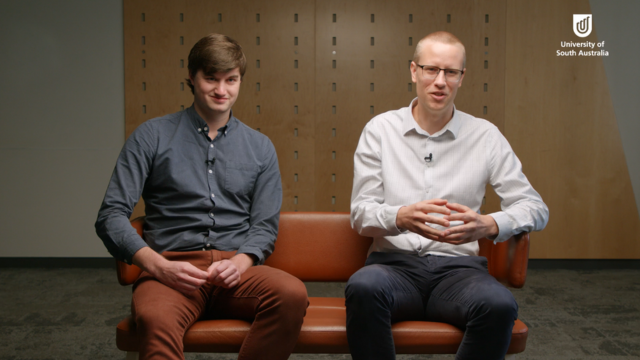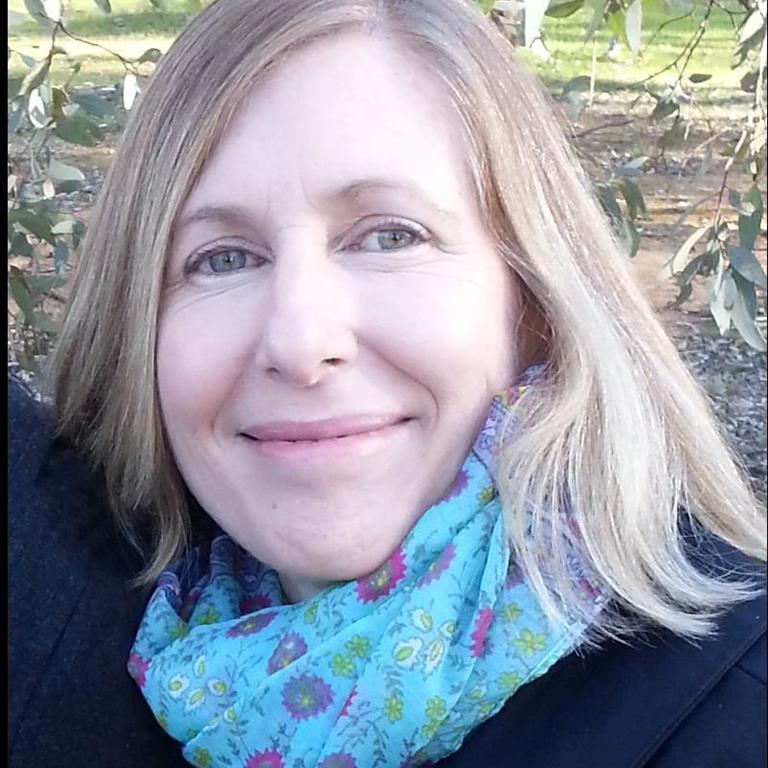Bachelor of Arts (Sociology)
Degree Level Undergraduate
Year 2025
You're considered an International student if you are:
Degree Level Undergraduate
Year 2025
Program Code
MBAA
Prerequisites
None
Assumed Knowledge
None
Fees
AUD$ 32,800 per annum (per 1.0 EFTSL) for students enrolled in 2025
Admissions
Student Profile
International Admission by Country
See full entry requirements
CRICOS Code
081805C
The admission criteria have been grouped to assist you to easily find the information most relevant to your circumstances. However, you may fit into more than one and the university will consider applicants against each of the relevant criteria.
Certain conditions apply. For more information refer to Appendix 4 of the University's Selection and Entry policy.
Applicants are required to meet one of the following criteria with a competitive result, and demonstrate that they fulfil any prerequisite requirements and essential requirements for admission:
Recent secondary education
Meet any prerequisite requirements with a minimum grade of C- or equivalent
AND
Applicants who have not achieved the Selection Rank required for automatic selection may be selected for any remaining places based on the grades of their year 12 subjects.
OR
Higher education study
OR
Vocational Education and Training (VET)
OR
Work and life experience
| Eynesbury FSP | 310 |
| German Abitur | 3.8 |
| Kenya KCSE (average) | B |
| Malaysia STPM (best 3) | 6 |
| Bangladesh HSC | 3.5 |
| Malaysia UEC | 32 |
| Norway GPA | 2.8 |
| Pakistan HSSC | 75 |
| Sri Lanka A Levels (best 3) | 6 |
| Sweden GPA | 12.5 |
| UK Board GCE A Levels/HK Board | 6 |
| Vietnam | 7 |
| Australia | 65 |
| IB (best 6) | 26 |
| USA SAT (1600) | 1050 |
| India (best 4) State Board | 70 |
| India (best 4) Central Board | 60 |
| HKDSE | 15 |
| Nepal NEB | 2.41 |
| Canada High School (OSSD) | 60 |
1Ranked #3, ComparED (QILT) Course Experience Questionnaire 2021-22, Humanities, Culture and Social Sciences – Overall Satisfaction Indicator (Domestic Undergraduate). Public universities. 22018 Excellence in Research for Australia (ERA), 4-digit Fields of Research.

As a student studying the Sociology major you will investigate cultural, social and political trends and attain sought-after skills in critical and creative thinking.
You will:
You will also graduate with writing, presentation, digital, communication, research and problem-solving skills that can be transferable across a range of roles and are highly regarded by prospective employers.
Learn more about how to tailor your Arts degree to suit your interests in the Humanities and Social Sciences.

This degree will explore social life, social change and social problems. You will develop an understanding of the complexities of contemporary social life; addressing social problems and examining issues of ethnicity, globalisation, popular culture and social movements.
You will develop the critical and creative thinking skills to identify trends, structures and social issues that emerge from cultural, political and economic change. You will graduate with a sound knowledge of:
This degree allows you to select two majors ensuring you graduate with an in-depth knowledge of areas of interest to you. You can choose your second major from the following:
In addition to your two majors, you will also be required to complete two core courses, four courses from a selected list of minors (also from the above list), and Professional Directions Program 1 & 2 or two electives.

This degree increases your employment prospects by enabling you to gain expertise in two different areas of interest. This degree equips you with in-depth knowledge of the complexities of contemporary social life; addressing social problems and examining issues of ethnicity, globalisation, popular culture and social movements.
You will have opportunities to engage with community and industry partners through placements and mentoring conversations as part of your studies through the Professional Directions Program.
There are also opportunities to study a portion of your degree overseas, as part of the Global Experience study tours..
You could continue your studies with a Master of Teaching with one major and one minor Learning Area. If this interests you, please read How Do I Become a Teacher before selecting your courses.
You may also choose to further your studies through a Master of Social Work. Students must ensure they are aware of the entry requirements of this postgraduate program before selecting courses in the Bachelor of Arts undergraduate degree.
UniSA’s Bachelor of Arts is taught by world-class educators and researchers and enables you to pursue two areas of academic interest at once. Hear from UniSA student Luke Heathorn and Program Support Coordinator Louis Everuss on what it's like studying our Bachelor of Arts degrees.

Your knowledge of social life, social change and social problems, combined with strong analytical and research skills, can lead to further study or a career in such diverse fields as:
This program helps you develop many transferable skills which are highly regarded by employers including:
critical analysis
Further study and career options include:
Further career pathways are available depending on your combination of majors.
You may also choose to further your studies through a Master of Social Work. Students must ensure they are across the entry requirements of this postgraduate program before selecting courses in the Bachelor of Arts undergraduate degree.
How to apply for international students will give you helpful information about the application process at the University of South Australia. When you are ready, apply through our International Application System. If you would like to talk to someone near you about studying at the University of South Australia, we have agents all over the world who can assist you. Find an Education Agent in your country.
Australian
There are other pathways you can follow to study this degree, including:
International
There are other pathways you can follow to study this degree, including:
Every year, over 2,500 UniSA students are supported in their studies through scholarships and grants worth millions of dollars. Check out the scholarships below. One of them may be perfect for you. Visit our scholarships page for more.
Recipients can get a 50% reduction on tuition fees for up to four years of full-time study for selected degrees.
Recipients can get a 15% reduction on tuition fees for the duration of their chosen degree.
As a UniSA student, you will have unique access to work placement opportunities, overseas study tours and exchanges, networking events, internships, guest speakers and more.
Our campuses are equipped with state-of-the-art facilities including modern lecture theatres, libraries, workshops and laboratories, as well as spaces that simulate real work environments. These are all supported by the latest technologies and a 24/7 online learning platform. We have health services on campus, gymnasiums, technology zones and great student lounges. You will also gain access to a range of community clinics, which provide professional and cost effective services in areas of health, business, law and psychology. There are campus sport activities to keep you active, and if you are keen to explore the social side of university life, there are movies, cooking demonstrations, parties and lots more.
Adelaide also has a variety of accommodation options to suit different requirements and budgets. Options include dedicated student accommodation and private rentals. See our long-term accommodation pages, or explore our student accommodation by Scape on Bank Street in Adelaide’s lively cultural precinct, an ideal location for students. It is within easy reach of UniSA’s city and metropolitan campuses, Rundle Mall shopping, the Central Market, Chinatown, and the West End’s vibrant nightlife. It is also across the road from the Adelaide train station, and on bus and tram routes.
As an Arts student you will have access to:

I am Director of the Bachelor of Arts Programs, Lecturer in Applied Linguistics, and Fellow of the Advanced Higher Education Academy, UK.
My academic background is in Languages and Applied Linguistics (BA Hons, PhD), following extensive experience in clinical practice across a range of health and medical domains in Australia. My work places a strong focus on developing reciprocal, trusting relationships in my teaching, mentoring and engagement with students, and in my research in partnership with colleagues, community and industry. My teaching and research inform each other. I coordinate and teach core courses in the Bachelor of Arts, and my research focuses on language and communication in professions and organisations in various contexts. These include state and nationally funded projects in health care, aged care, education, counselling, and policing.
The upshot is that our Bachelor of Arts program develops each student’s interests, strengths and aspirations, enabling each student to explore and prepare for a wide range of career and life goals. The unique double major structure combines theory and practice with real-world experience to develop strong interdisciplinary skills that are highly valued by industry, government and community.

There are a number of ways to apply to study UniSA's undergraduate and postgraduate coursework degrees.
You can access our online International Application System through our How to Apply page. The International Application System is an easy and secure online application and acceptance process. You will have visibility of your application through the secure online portal with the ability to download offer documents, submit your acceptance and make a payment.
Alternatively you can submit an application through one of the University's registered Education Agents.
If you are completing an Australian year 12 qualification in Australia or overseas, or the International Baccalaureate (IB) Diploma Programme in Australia, you must apply through SATAC http://www.satac.edu.au/.
If you are applying for the UniSA Study Abroad or Study Abroad Plus program, you can submit your application online here.
Postgraduate study by research
For information on applying to do postgraduate study by research, including Masters by Research, PhDs or Doctorates, please visit http://unisa.edu.au/resdegrees.
There is no closing date for submitting your application however the admissions process takes between one and three weeks from the date that we receive your application and all required supporting documentation.
If you are completing an Australian year 12 qualification in Australia or overseas, or the International Baccalaureate (IB) Diploma Programme in Australia, you must apply through SATAC. Key dates for applications can be found here.
You may be eligible to receive credit or advanced standing for your chosen UniSA degree based on your previous studies, if they are in a related area at an equivalent or higher level. Receiving credit will reduce the number of courses you undertake within the degree, and may also reduce the overall duration of your degree.
The amount of credit you may be eligible to receive is assessed on a case-by-case basis by the Admissions team.
The best way to determine your eligibility to receive credit or advanced standing is to apply using our International Application System which can be found on our How to Apply page. You will need to supply detailed syllabus documents with your application.
UniSA welcomes the opportunity to speak with you regarding your study options. Our staff are able to talk to you about degree information, career outcomes and pathways, entry requirements, applications, and student life, so that you are able to make the best study decision for your future.
Click here to book a 1:1 appointment with one of our enquiries team.
We also have many events throughout the year in Australia and overseas where you can speak with UniSA representatives about your area of interest. View our calendar of events in your home country by selecting the 'International' filter.